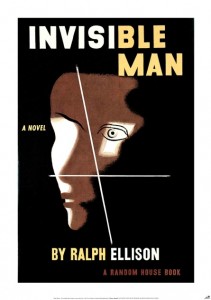 Give the rate at which schools are banning books this week, you wouldn’t think Banned Books Week is just around the corner. However, it’s happened again, this time in Randolph County, North Carolina.
Give the rate at which schools are banning books this week, you wouldn’t think Banned Books Week is just around the corner. However, it’s happened again, this time in Randolph County, North Carolina.
On Monday night, the Randolph County Board of Education voted 5-2 to remove Ralph Ellison’s Invisible Man from library shelves throughout the district. The removal comes despite two review committeess recommendation that the book be retained and that it is a suitable part of the district’s curriculum.
Published in 1952, Invisible Man was award the 1953 National Book Award and sits atop several best English-language novel lists. It discusses the social, intellectual, and identity issues that many African Americans faced in the 20th Century. Further, the book is no stranger to library challenges: It has been challenged many times for profanity and sexual content.
Invisible Man is on the summer reading list for Randelman High School juniors, but it is not required and alternatives are available. Parent Kimiyutta Parson filed a 12-page complaint against the book, writing:
“The narrator writes in the first person, emphasizing his individual experiences and his feelings about the events portrayed in his life. This novel is not so innocent; instead, this book is filthier, too much for teenagers. You must respect all religions and point of views when it comes to the parents and what they feel is age appropriate for their young children to read, without their knowledge. This book is freely in your library for them to read.”
After the complaint was filed, the district-mandated media review committee met and recommended its retention. A second ten-person committee reviewed the decision and also determined the book was appropriate for the honors curriculum. However, the school board overruled both committees, with at least one member of the board relating that in his opinion the book had no literary value and its use of profane language meant it should not be made available to students. At least one board member called it a “hard read.”
This is certainly a case of censorship. The school board allowed their personal opinions and the opinion of one parent dictate what material is available to all of the students in the district. The coverage of the ban doesn’t indicate the next course of action, but it’s certain that the school system will hear from free speech advocates around the nation.
Please help support CBLDF’s important First Amendment work and reporting on stories such as this by making a donation or becoming a member of the CBLDF!